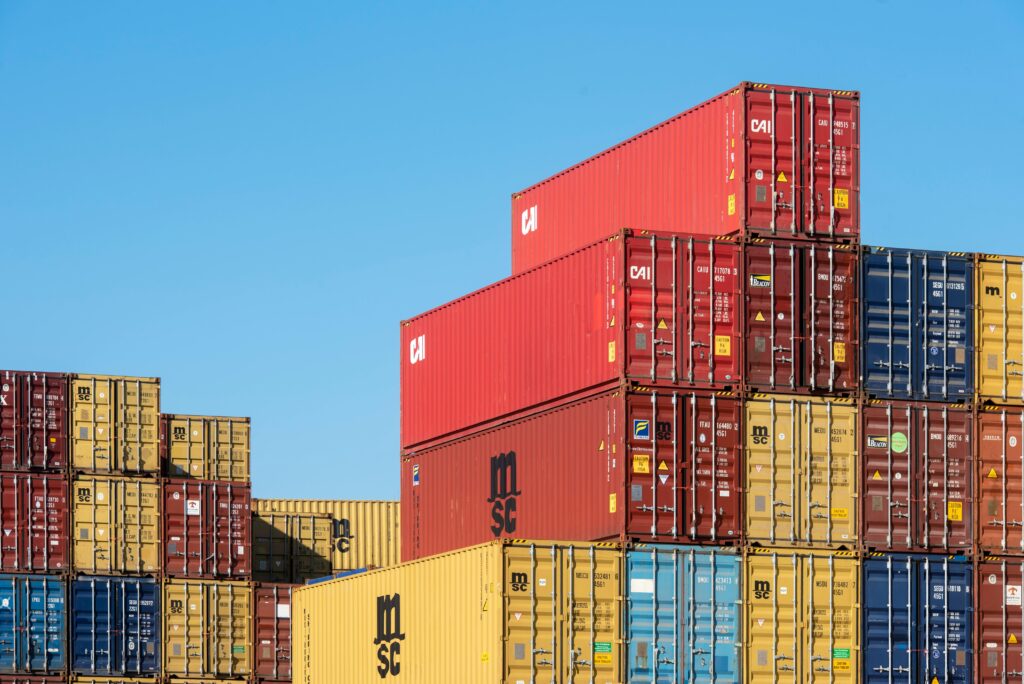Supply Chain Management is a critical business function that ensures the smooth flow of goods, services, and information from suppliers to customers. It helps organizations reduce costs, improve efficiency, and maintain competitive advantage in today’s fast-paced markets. Effective supply chain practices focus on logistics management, inventory control, and strong supplier relationships. By using data-driven planning and modern technology, businesses can enhance operational efficiency and respond quickly to market demands. Supply chain management also plays a key role in risk management, sustainability, and customer satisfaction. Companies that invest in smart supply chain strategies are better prepared to handle disruptions and achieve long-term growth and success.
The Importance of Industrial Supply Chain Solutions USA
Industrial supply chain solutions in the USA offer tailored services that cater to specific industry needs. Companies can access advanced logistics, automation technologies, and data-driven insights to improve their supply chain performance. These solutions not only save time and money but also enhance operational visibility.
Additionally, local providers understand regional regulations, market dynamics, and infrastructure, making it easier for businesses to navigate challenges. Partnering with trusted industrial supply chain solution providers ensures a seamless workflow from procurement to delivery, fostering growth and customer satisfaction.
Supply Chain Optimization Services: Streamlining Your Operations
Optimizing a supply chain involves identifying inefficiencies and implementing strategies to improve performance. Supply chain optimization services help businesses reduce waste, lower costs, and improve delivery speed. Techniques include inventory management, demand forecasting, and route optimization.
By leveraging data analytics, companies can predict trends, adjust production schedules, and allocate resources more effectively. Optimization not only improves operational efficiency but also enhances customer experience, as products reach clients faster and with fewer errors. In the competitive industrial landscape, optimized supply chains are key to staying ahead.
Manufacturing Supply Chain Management: Enhancing Production Efficiency
In manufacturing, SCM ensures that materials, machinery, and labor are efficiently coordinated to produce high-quality products. Manufacturing supply chain management focuses on synchronizing production schedules, inventory levels, and supplier interactions to minimize delays and costs.
Advanced techniques like Just-In-Time (JIT) production and Lean Manufacturing reduce waste and maximize resource utilization. Moreover, integrating technology, such as IoT and AI, allows manufacturers to monitor operations in real time, predicting potential bottlenecks and ensuring smooth production.
Logistics and Supply Chain Consulting: Expert Guidance for Businesses

Navigating the complexities of SCM can be challenging, which is where logistics and supply chain consulting come into play. Experts analyze existing processes, identify weaknesses, and propose actionable solutions tailored to specific business needs.
Consultants can assist with vendor selection, transportation planning, warehouse management, and technology integration. Their insights help businesses make informed decisions, reduce risks, and implement strategies that improve overall supply chain efficiency. Partnering with experienced consultants ensures sustainable growth and operational excellence.
Supply Chain Risk Management USA: Minimizing Disruptions
Every supply chain faces potential risks, from natural disasters to supplier failures. Supply chain risk management in the USA focuses on identifying, assessing, and mitigating these risks to maintain continuity. Companies develop contingency plans, diversify suppliers, and implement monitoring systems to reduce vulnerabilities.
Effective risk management ensures that operations remain stable even during unforeseen disruptions. It protects profits, maintains customer trust, and strengthens the resilience of the supply chain. In an era of global uncertainties, proactive risk management is essential for industrial businesses in the USA.
Technology in Supply Chain Management: Driving Innovation
Technology plays a crucial role in modern SCM. Tools like ERP systems, AI-driven analytics, and IoT devices enable real-time tracking, predictive maintenance, and automated decision-making. These innovations enhance transparency, accuracy, and speed across the supply chain.
For example, predictive analytics can forecast demand trends, allowing companies to adjust inventory levels proactively. IoT sensors monitor equipment health, preventing unexpected downtime. Embracing technology in supply chain management not only boosts efficiency but also provides a competitive advantage.
Sustainable Supply Chain Practices: Balancing Profit and Responsibility
Sustainability is increasingly important in SCM. Businesses adopt eco-friendly practices to reduce environmental impact while maintaining profitability. Sustainable initiatives include using renewable energy, optimizing transportation routes, and minimizing waste.
Companies that implement sustainable supply chain practices also enhance their brand image, appeal to environmentally conscious consumers, and comply with regulatory standards. Balancing profit and responsibility ensures long-term growth and a positive societal impact.
Globalization and Supply Chain Management: Expanding Horizons

Globalization has transformed supply chains, connecting businesses with international suppliers and markets. Effective SCM manages cross-border logistics, customs regulations, and cultural differences. Companies can source materials globally while maintaining quality and cost efficiency.
Challenges such as political instability, tariffs, and shipping delays require strategic planning and risk management. Global supply chain management ensures that businesses remain agile and responsive, capitalizing on international opportunities while mitigating potential disruptions.
Training and Development in Supply Chain Management
Investing in human resources is vital for efficient SCM. Training programs enhance employees’ skills in areas like inventory management, logistics, and data analysis. Knowledgeable staff can implement strategies effectively and adapt to evolving industry trends.
Continuous development fosters innovation, improves problem-solving, and ensures that teams can handle complex supply chain challenges. By prioritizing training, businesses strengthen their internal capabilities and maintain a competitive edge in the industrial sector.
Conclusion: Mastering Supply Chain Management for Industrial Success
Supply chain management is a dynamic and critical aspect of modern business, particularly in the industrial sector. From industrial supply chain solutions USA to supply chain risk management, each component plays a vital role in operational success.
By embracing optimization services, consulting expertise, advanced technology, and sustainable practices, companies can build resilient, efficient, and profitable supply chains. Investing in training and development ensures that teams are equipped to navigate complexities and seize opportunities. Ultimately, mastering supply chain management drives industrial growth, customer satisfaction, and long-term success in the competitive USA market.
FAQs About Supply Chain Management
Q1: What is Supply Chain Management (SCM)?
A: Supply Chain Management involves planning, implementing, and controlling the flow of goods, information, and finances across a business. It ensures that products reach customers efficiently and cost-effectively.
Q2: What are Industrial Supply Chain Solutions in the USA?
A: Industrial supply chain solutions in the USA provide businesses with tailored services, including logistics, automation, and data-driven insights, to streamline operations and enhance efficiency.
Q3: How can I optimize my supply chain?
A: Supply Chain Optimization Services help identify inefficiencies, improve inventory management, forecast demand, and optimize routes. These services enhance efficiency, reduce costs, and improve customer satisfaction.
Q4: What is Manufacturing Supply Chain Management?
A: Manufacturing SCM focuses on coordinating materials, machinery, and labor to produce high-quality products efficiently. It uses strategies like Just-In-Time (JIT) and Lean Manufacturing to reduce waste and delays.
Q5: How can Logistics and Supply Chain Consulting help my business?
A: Consultants analyze your supply chain, identify weaknesses, and provide actionable solutions. They assist with vendor selection, warehouse management, transportation planning, and technology integration.
Q6: What is Supply Chain Risk Management in the USA?
A: Supply Chain Risk Management USA focuses on identifying, assessing, and mitigating risks such as natural disasters, supplier failures, or political disruptions, ensuring business continuity.
Q7: How does technology improve supply chain management?
A: Tools like ERP systems, AI analytics, and IoT devices enable real-time tracking, predictive maintenance, and automated decision-making, boosting transparency, accuracy, and efficiency.
Q8: Why is sustainability important in supply chain management?
A: Sustainable practices reduce environmental impact, improve brand reputation, and comply with regulations. They include renewable energy, route optimization, and waste minimization.
Q9: How does globalization affect supply chains?
A: Global supply chains connect businesses with international suppliers and markets, requiring careful planning to manage customs, shipping delays, and international regulations effectively.
Q10: Why is training important in supply chain management?
A: Training equips employees with skills in logistics, inventory management, and data analysis. Knowledgeable teams can implement strategies effectively, adapt to trends, and solve complex supply chain challenges.
Welcome to kingymab. online! I’m Muhammad Ali, an AI-Powered SEO and Content Writer with 4 years of experience. I help websites rank higher, grow traffic, and look amazing. My goal is to make SEO and web design simple and effective for everyone. Let’s achieve more together!

